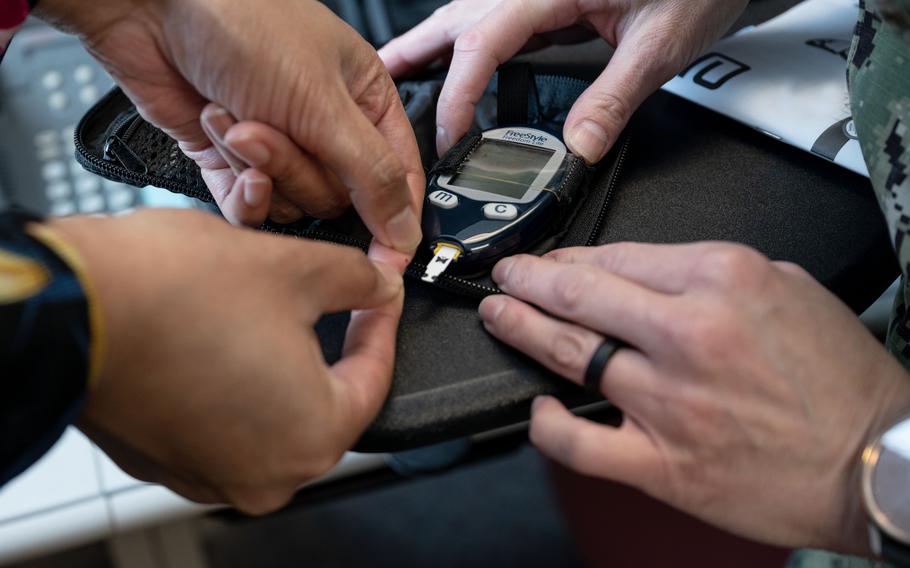
Treatment for post-traumatic stress disorder in veterans under 50 may reduce the risk of insulin-dependent diabetes and all-cause mortality, a Saint Louis University School of Medicine study found. (Defense Centers for Public Health)
Early treatment of post-traumatic stress disorder for younger veterans may decrease the risk of developing insulin-dependent diabetes and lower the odds of an earlier death, a recently released study says.
Veterans under the age of 50 who no longer met the diagnostic criteria for PTSD had a lower risk of needing insulin prescriptions, according to a Saint Louis University School of Medicine study released last week and published online at the National Library of Medicine.
It wasn’t clear if veterans 50 and older who no longer met PTSD criteria saw the same benefits.
That’s because younger, adult patients logically would have a reduced risk of insulin initiation and mortality because the number of preexisting health conditions that contribute to poor health increases with age, researchers said.
Researchers analyzed the Veterans Health Administration records of 10,002 veterans ages 18 and older with a PTSD checklist score of 33 or higher and who also had Type 2 diabetes, or T2D. The patients also must have attended at least nine PTSD treatment sessions in any 15-week period.
Patients with a checklist score of under 33 were no longer considered to have PTSD.
Those who stick with PTSD treatment “may be more likely to engage in other healthy behaviors that could reduce the risk of T2D complications compared with those who do not,” researchers said.
The analysis was conducted from March 1 to June 1 and included medical records from Oct. 1, 2011, to Sept. 30, 2022.
The research also revealed an association with a lower risk of microvascular complications, such as kidney disease, for veterans whose checklist score was less than 33. And patients who didn’t meet the PTSD threshold and weren’t depressed also had a lower risk of needing insulin, the study found.
Researchers said the study was significant because people who suffer from mental health disorders have a 20-year shorter life expectancy than those without mental illness. The disparity may be linked to the association between mental illness and poor metabolic health.
For example, PTSD is associated with a significantly increased risk of T2D. Patients who have PTSD and T2D have worse glycemic control, higher risk of hospitalization and poorer self-reported health compared with patients with T2D alone, the report stated.
The study’s findings suggest that PTSD is a modifiable risk factor among T2D patients, researchers said.